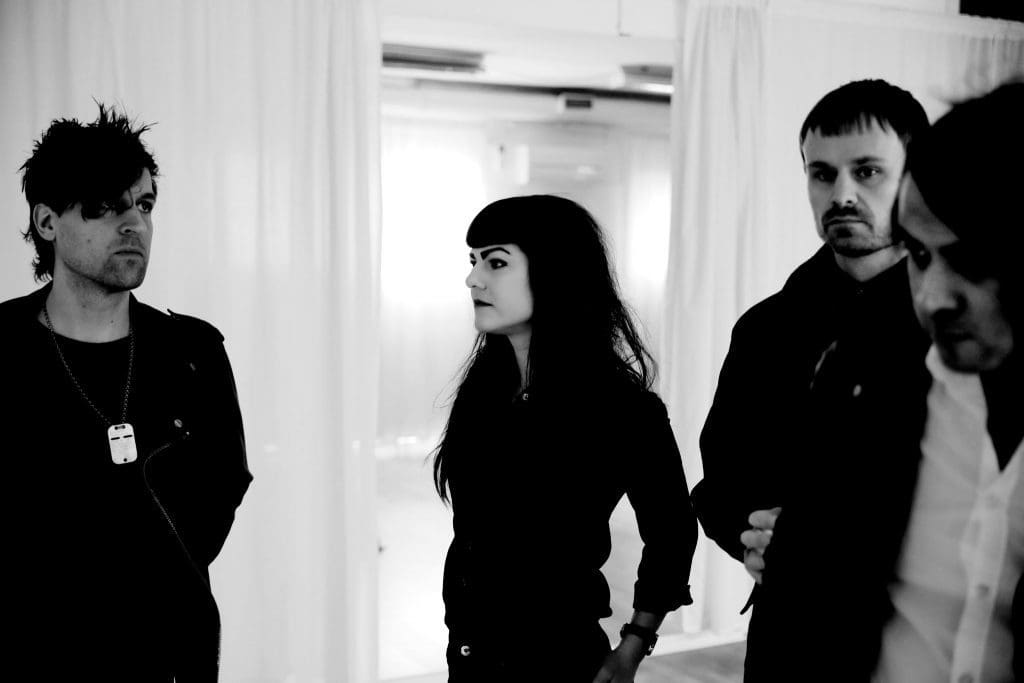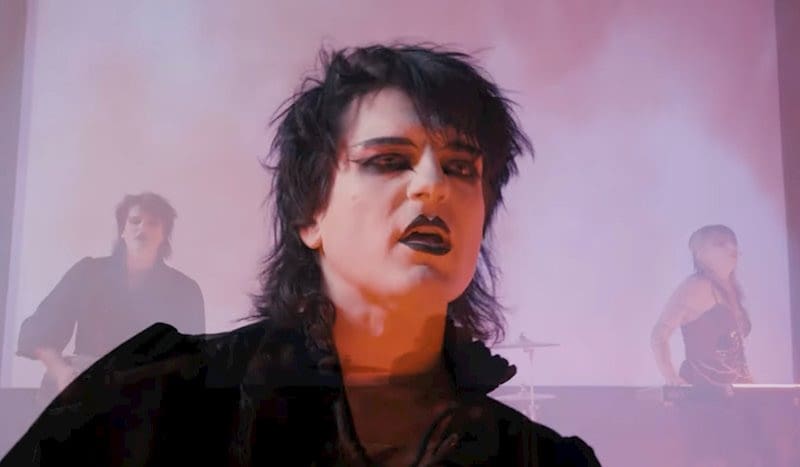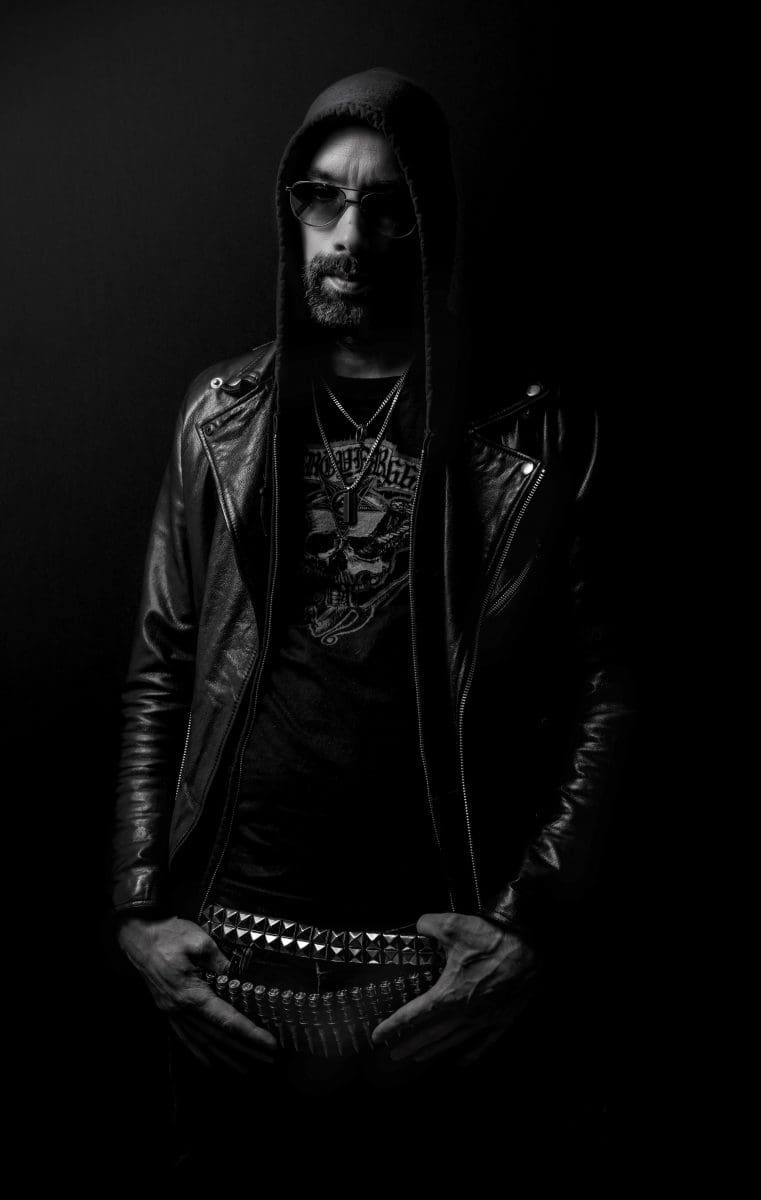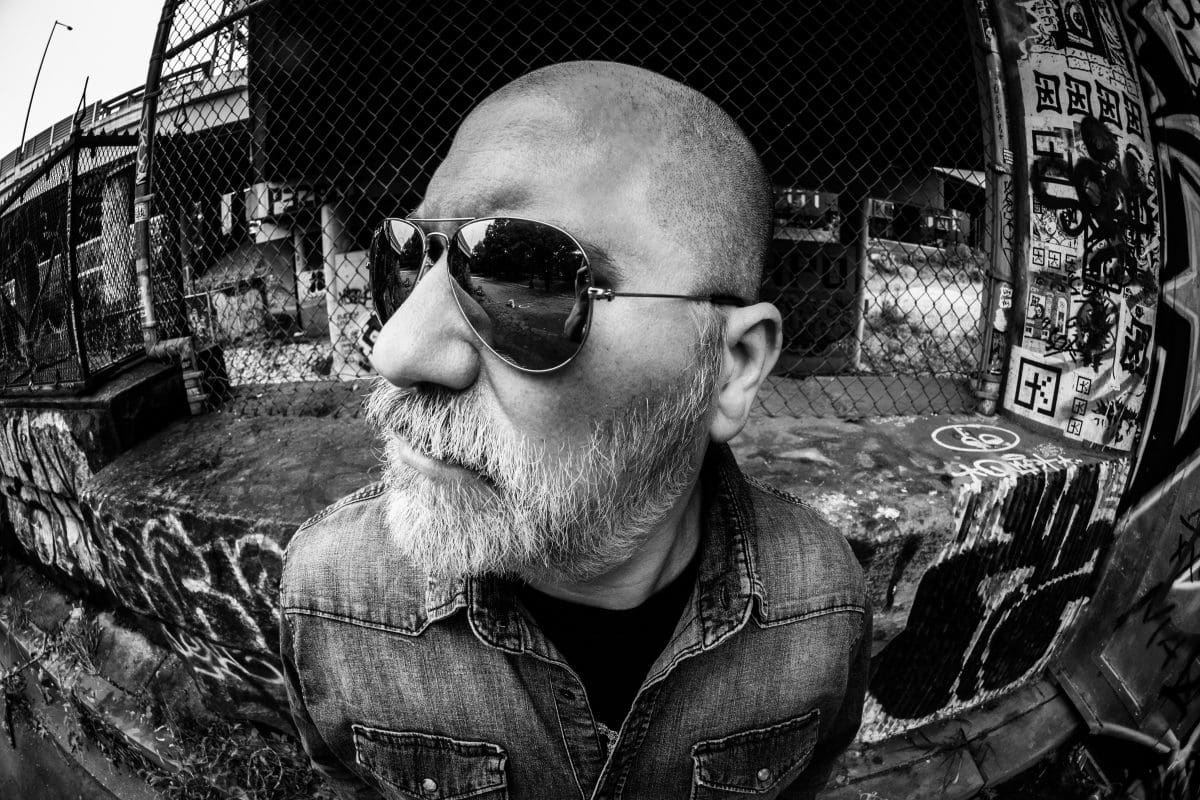’Click Interview’ with Principe Valiente: ’Very Energetic And A Bit Mysterious’


Swedish formation Principe Valiente is already active for numerous years now. They don’t release new albums at regular basis but each new work has something magic. Driven by good-old Cold-Wave and Post-Punk influences their sound also has something Indie-Pop like. The band is driven by Fernando Honorato (vocals, bass), Jimmy Ottosson (guitar), Rebecka Johansson (keyboards) and Joakim Janthe (drums). They early this year released their fourth full length album entitled ”Barricades” on Metropolis Records. It’s a new masterpiece and even one of the best productions in the genre I’ve heard in months. A very good reason to get in touch with front man Fernando Honorato.
(Courtesy by Inferno Sound Diaries)
Q: Principe Valiente is already active for a while now. What were the triggers and influences to start this band and what does Principe Valiente stand for?
Fernando: Well, I played in different constellations during my youth in my 20’s and somehow I never captured what I really wanted to achieve in a creative sense then, I had a strong need to express a lot of stuff and also sing for myself (I was just the bass player in the early groups). So I started Principe Valiente.
The band name simply means ’Brave Prince’ in Spanish. I think the words have a nice sound and at the same time a slightly deeper meaning. Quite simply the romantic illusion that you as an individual hope somewhere that someone will come and save you. The great Love, a guide, or some other form of security that may never come. Or the classic knight on the white horse. This sums up the bit dark in our sound as well but at the same time without losing hope.
It is very true that it is also a cartoon by Harold Foster. However, I have no connection to that series, but of course it happens people associate the name with it from time to time. Anyway, it has nothing to do with it. Rather one can draw parallels to the French book “Le Petit Prince” (”The Little Prince”) which I read a lot during childhood.
Q: You’re not the kind of band releasing an album a year. What happens the time in between albums and how did you finally start and prepare “Barricades”?
Fernando: Actually me (and also Jimmy the guitar player) write ideas pretty often but everyday life with work and families doesn’t allow us to release albums more often. And I’m also very slow at working on my own ideas, but it’s more of a practical issue. Hard to find the time and just go into the studio when all of the band members are available. Some early demos to songs on ”Barricades” I already started to work on in 2018, a year after the release of ”Oceans”, between tours etc. During the pandemic we were quite active though with the ”Broken Wings”-cover release and also the ”Debut Album, 10 Years Alternative Versions”-EP which I did after ”Barricades” was done. Then we had to wait a whole year to release it due to the vinyl manufacturer delays and the change of label etc.
Q: “Barricades” seems to be a very special work because of the lockdown but also because all members have been directly involved in the writing process. How do you look back at this process and evolution in writing? How did it finally happen?
Fernando: Well, I’ve worked on the demos for a time and the difference this time was mostly that all members were more active during the process than before. Even though me and guitar player Jimmy did most of it to bring this forward. But all of us were more able to give their opinions during the way and more involved than before.
When it was time to record more properly for the album later on, the lockdown more forced us to do it from home, and the first time I also could be able to do the vocals myself and also record the backing additional vocal girls at my place. And it worked surprisingly well, despite my limited technical skills. Then we took the step to send all the files for mix and post-production with Adam in Chicago with good dialogue and experimenting in different directions through email.
Q: What kind of album did you’d in mind? What did you try to accentuate and/or change and/or improve compared to previous albums? And what’s the importance of the lyrical content?
Fernando: Well, a more balanced thing, less desperate and frustrated than before in my way of singing. A more mature kind of songs, which we developed together me and Jimmy.
I also had more control of what I was doing with the vocals more than before and without this red light fever that I sometimes get. A more relaxed way to approach it all, also with the rest of my instruments.
Q: I always experienced Principe Valiente as a sonic fusion between multiple genres; pretty 80s like but also contemporary and Indie. What does it say about your sources of inspiration and referential artists/bands? How would you define the band’s sound?
Fernando: Dark-Pop, as German media called us at a very early state right after our debut album in 2011. A fairly accurate term.
But yes, it’s pretty much 80’s Post-Punk influences, both in names we all know but also influenced by bands such as The Sound and The Comsat Angels. And also some 90’s Indie stuff, Suede and early The Verve. But also from the energy from like Nirvana. It was actually both Suede and Nirvana which made me begin doing music back in high school in the 90’s. And of course Bowie. Over the years I’ve listened to a pretty broad of genres, both Electro/Ambient music and also bands like Tindersticks and Jeff Buckley.
Q: What are the plans about live tours and -performances? And how do you see yourself as a live band?
Fernando: We have a couple of shows planned and a German tour in September as well.
We love playing live and look forward pretty much to perform the new songs soon.
I think our way to see us agrees quite well with how the audience sees us –very energetic and a bit mysterious. I hope.
Since you’re here …
… we have a small favour to ask. More people are reading Side-Line Magazine than ever but advertising revenues across the media are falling fast. Unlike many news organisations, we haven’t put up a paywall – we want to keep our journalism as open as we can - and we refuse to add annoying advertising. So you can see why we need to ask for your help.
Side-Line’s independent journalism takes a lot of time, money and hard work to produce. But we do it because we want to push the artists we like and who are equally fighting to survive.
If everyone who reads our reporting, who likes it, helps fund it, our future would be much more secure. For as little as 5 US$, you can support Side-Line Magazine – and it only takes a minute. Thank you.
The donations are safely powered by Paypal.









